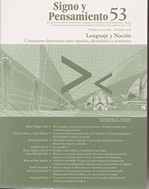Abstract
Throughout most of the 20th century, radio has contributed to spreading a nationalistic discourse in the process of Mexico’s state formation. In the Yucatan, three governmental radio stations now broadcast in Maya, use an iconography that resembles that used by official nationalism, and have a closer and more direct contact with the indigenous population than any other medium in history. The radio stations seem to muster everything needed to reproduce the official discourse easily. However, an iconographic analysis of the images projected by the radio stations and interviews with the creators of the iconography reveal that only part of the official nationalist discourse is accepted, while another part is adapted, reinvented, and questioned… in one word, negotiated. Although the radio stations belong to the government, they promote a Mayan rather than a Mexican mestizo identity.This journal is registered under a Creative Commons Attribution 4.0 International Public License. Thus, this work may be reproduced, distributed, and publicly shared in digital format, as long as the names of the authors and Pontificia Universidad Javeriana are acknowledged. Others are allowed to quote, adapt, transform, auto-archive, republish, and create based on this material, for any purpose (even commercial ones), provided the authorship is duly acknowledged, a link to the original work is provided, and it is specified if changes have been made. Pontificia Universidad Javeriana does not hold the rights of published works and the authors are solely responsible for the contents of their works; they keep the moral, intellectual, privacy, and publicity rights.
Approving the intervention of the work (review, copy-editing, translation, layout) and the following outreach, are granted through an use license and not through an assignment of rights. This means the journal and Pontificia Universidad Javeriana cannot be held responsible for any ethical malpractice by the authors. As a consequence of the protection granted by the use license, the journal is not required to publish recantations or modify information already published, unless the errata stems from the editorial management process. Publishing contents in this journal does not generate royalties for contributors.


